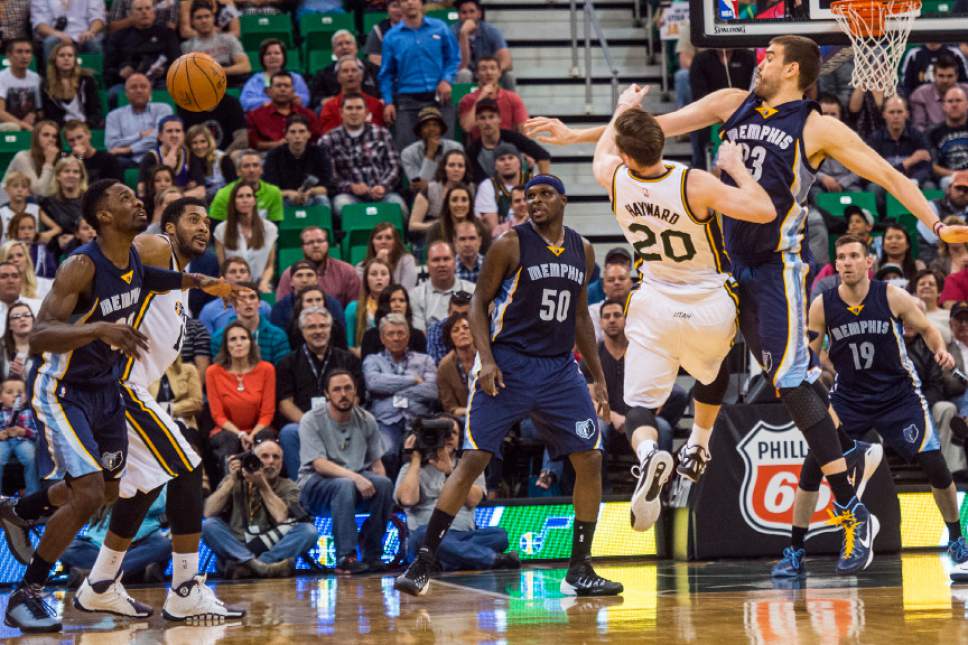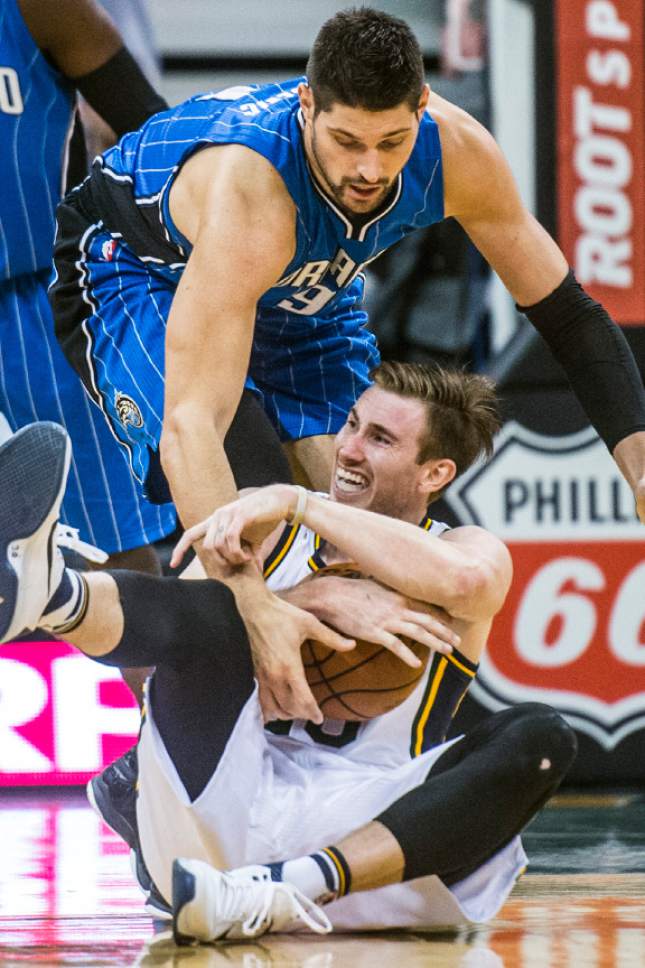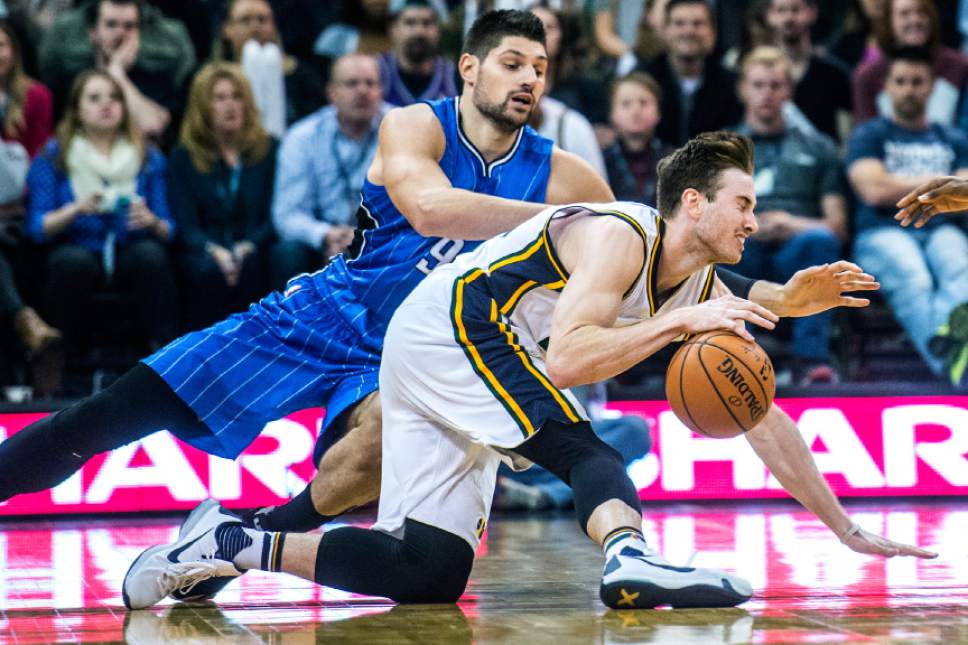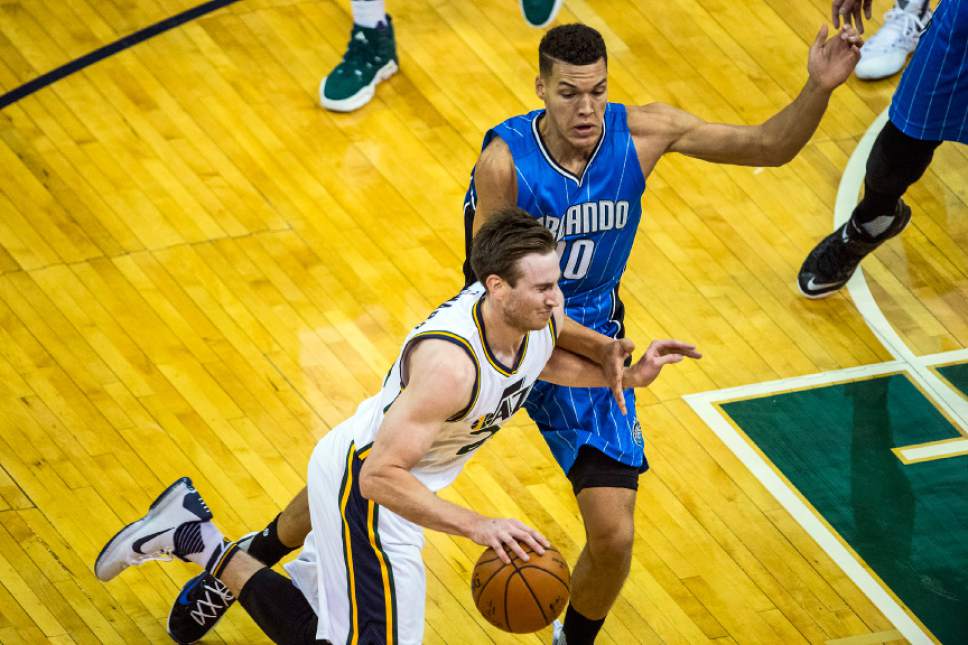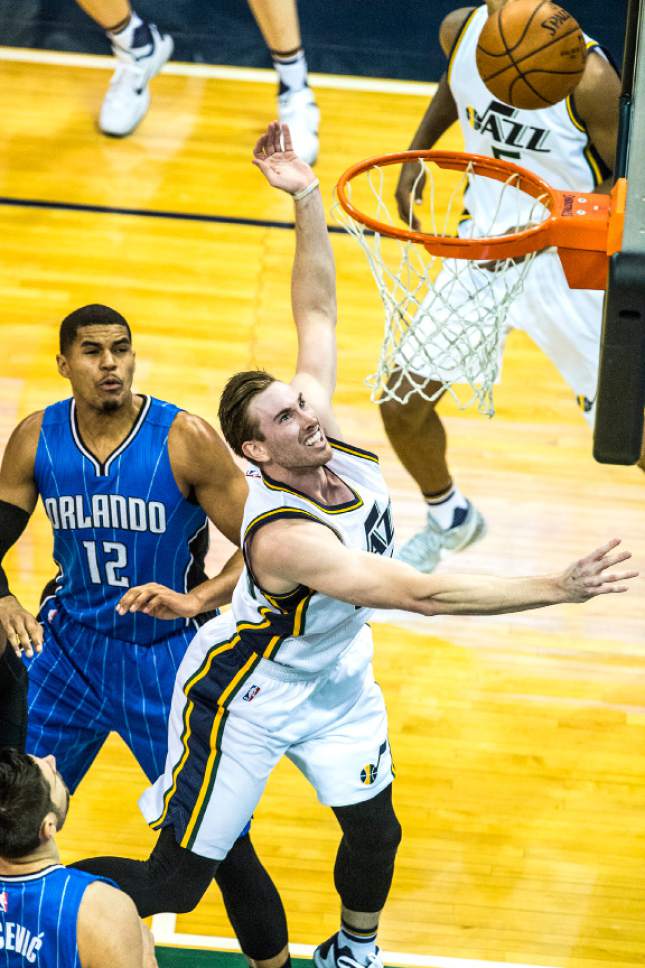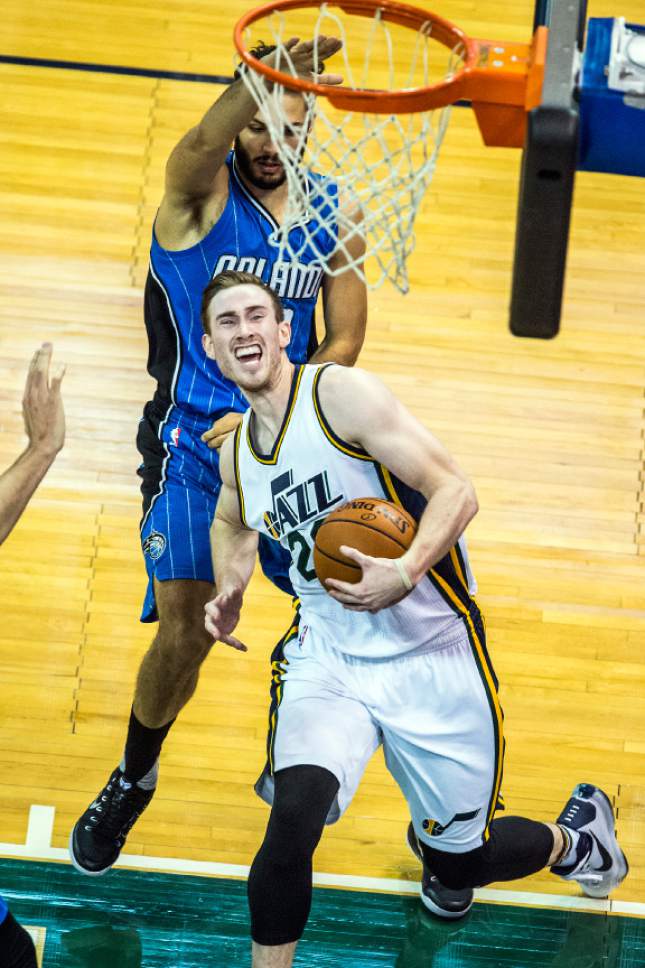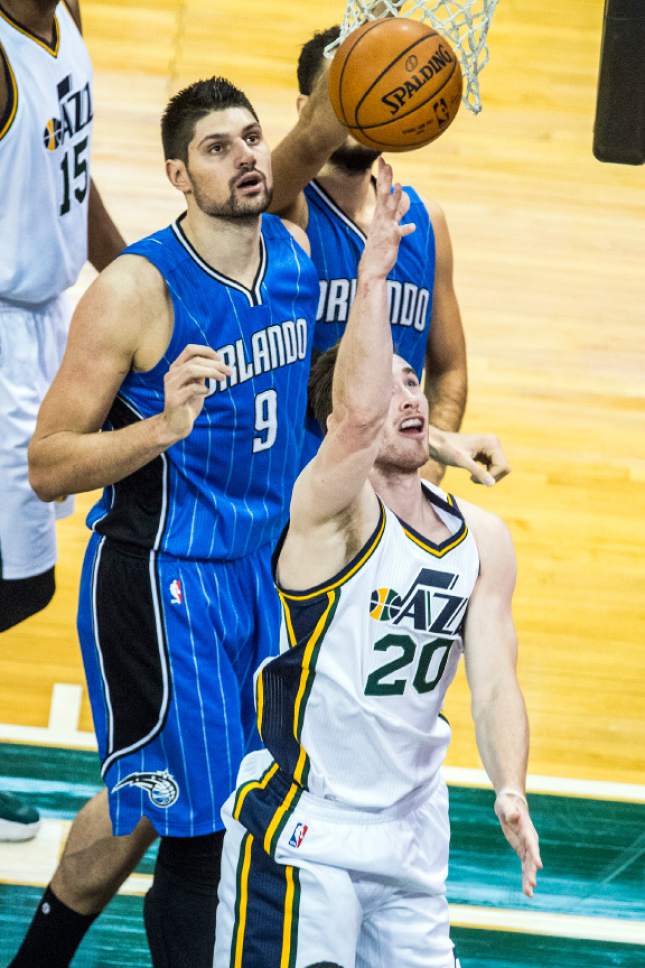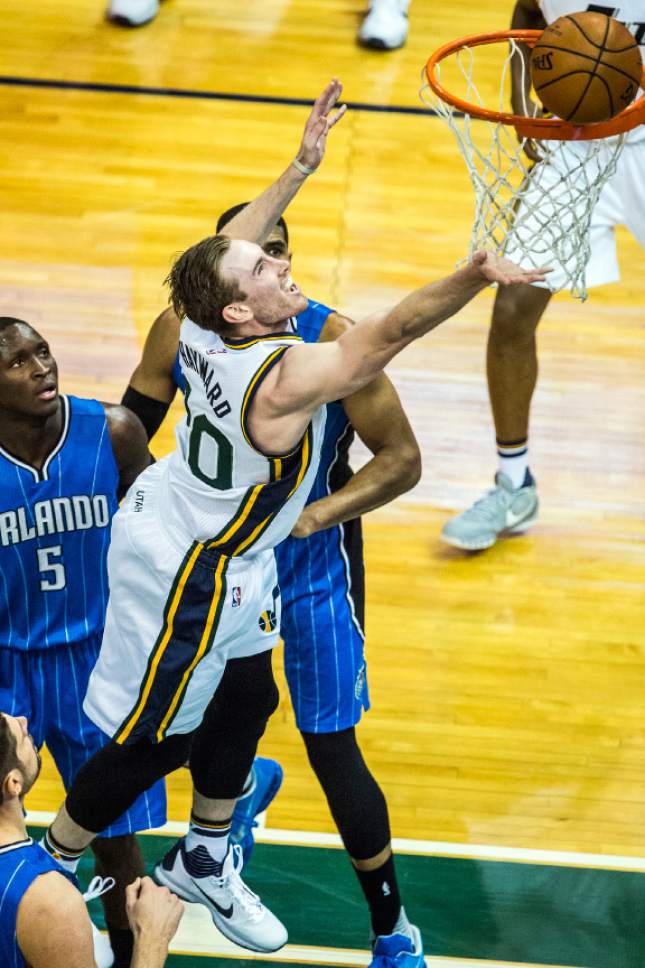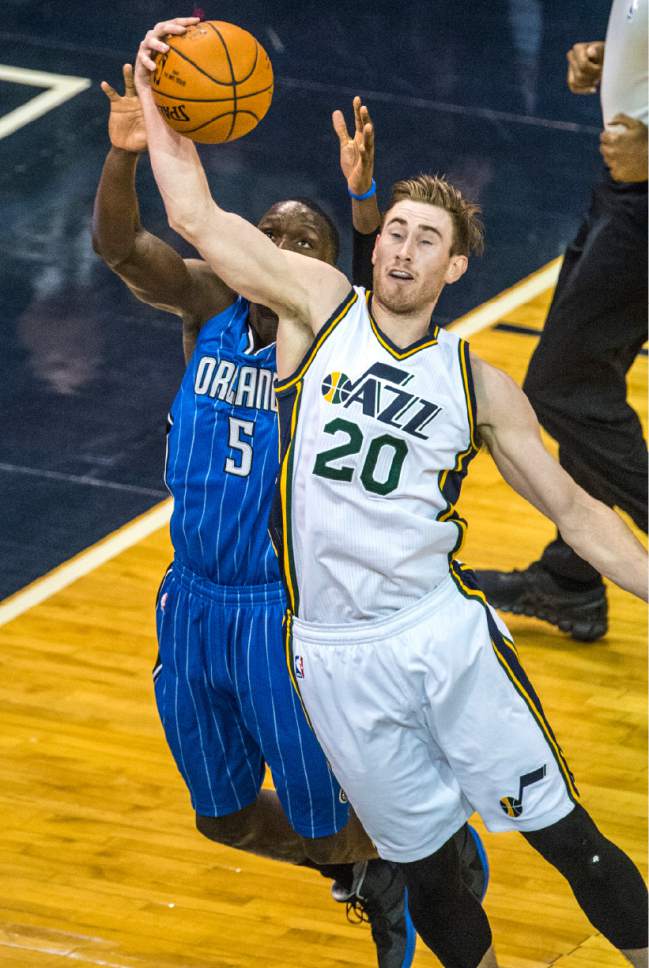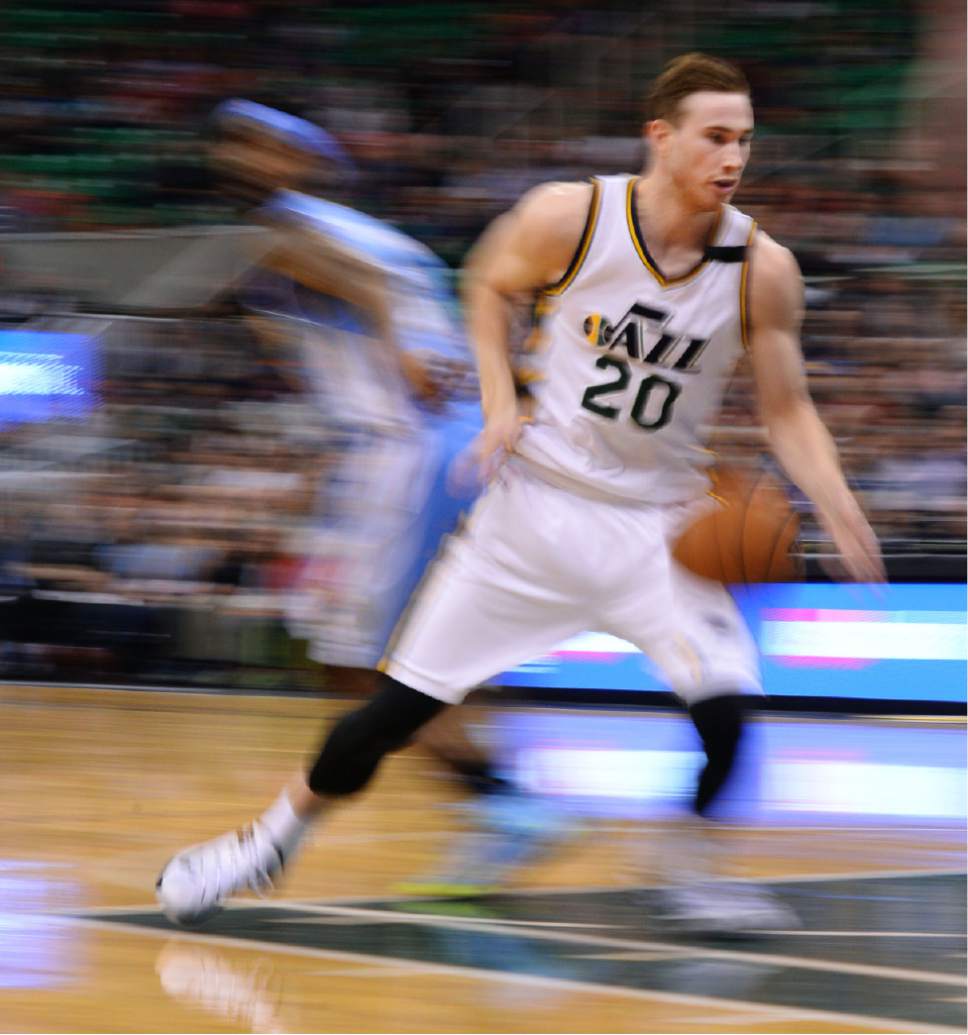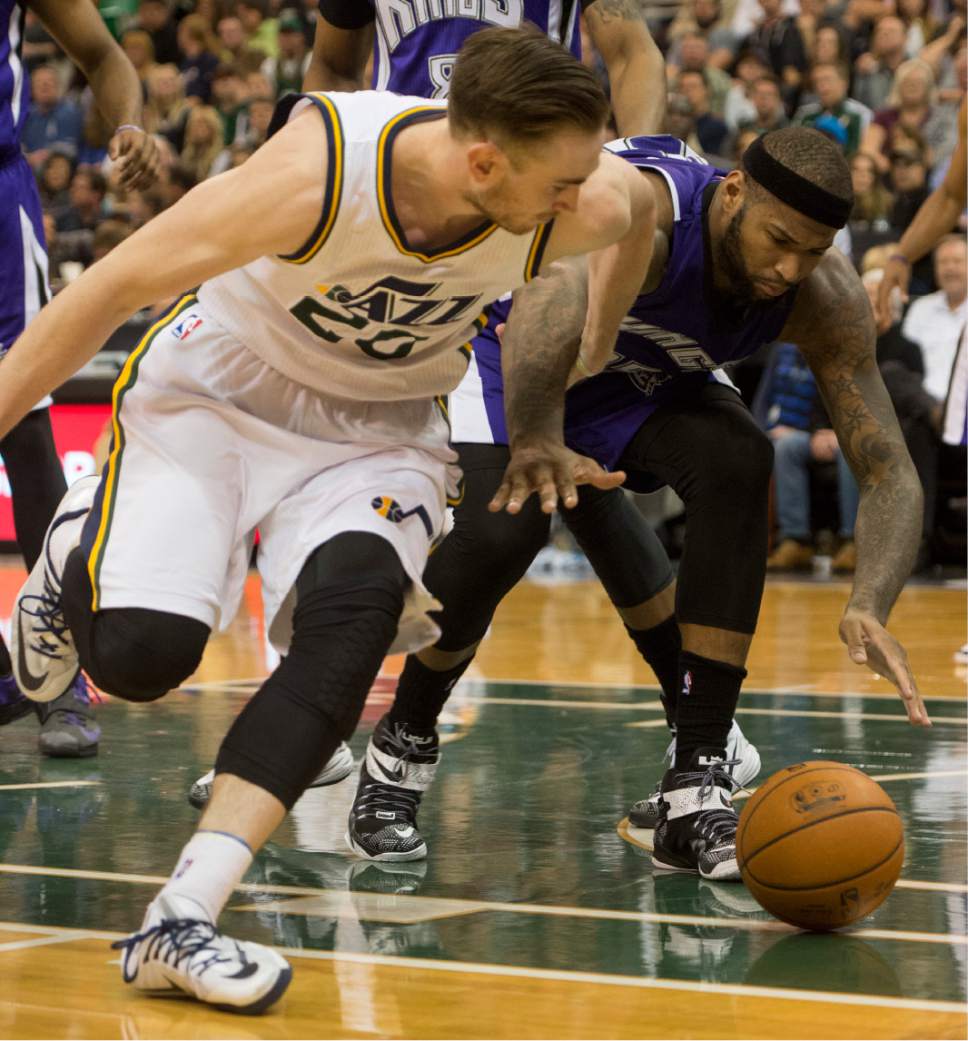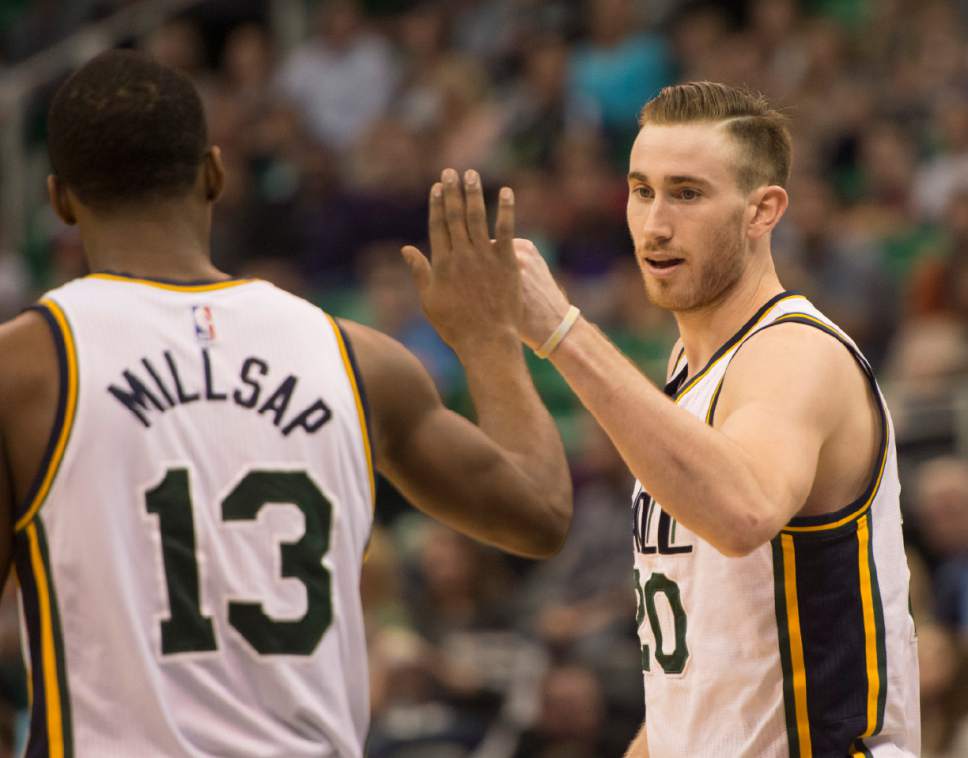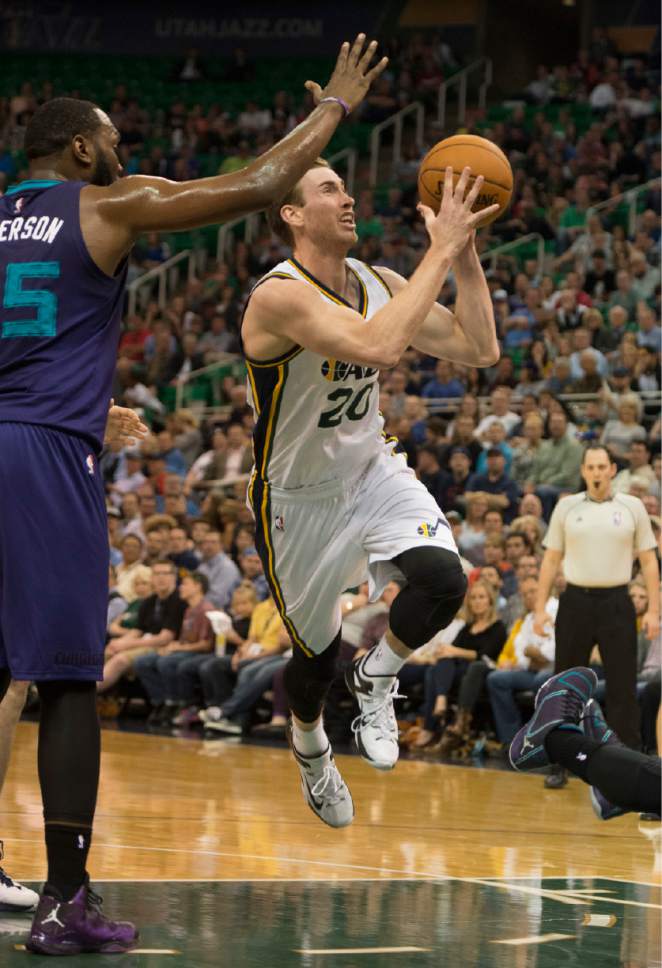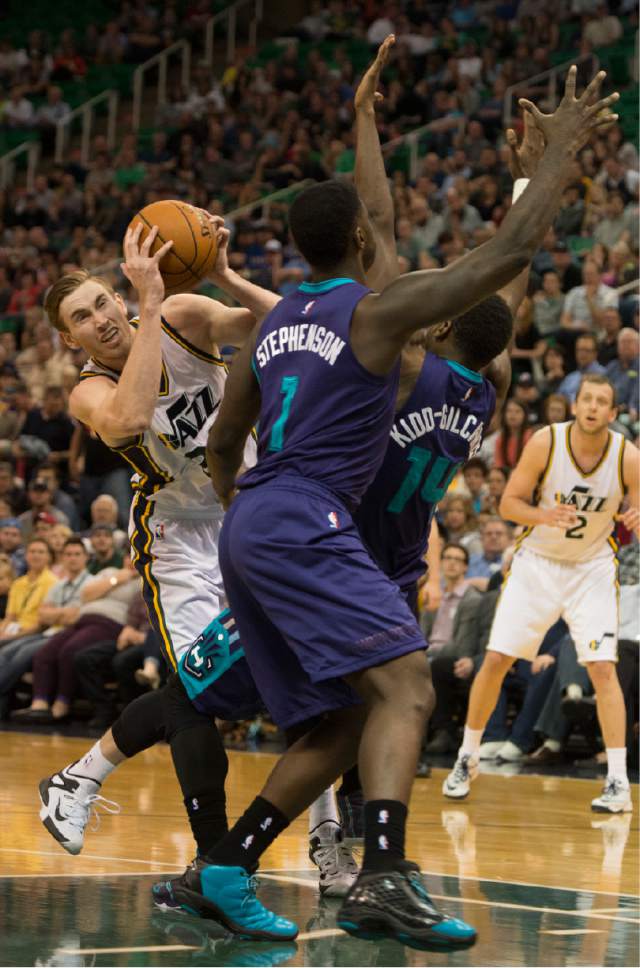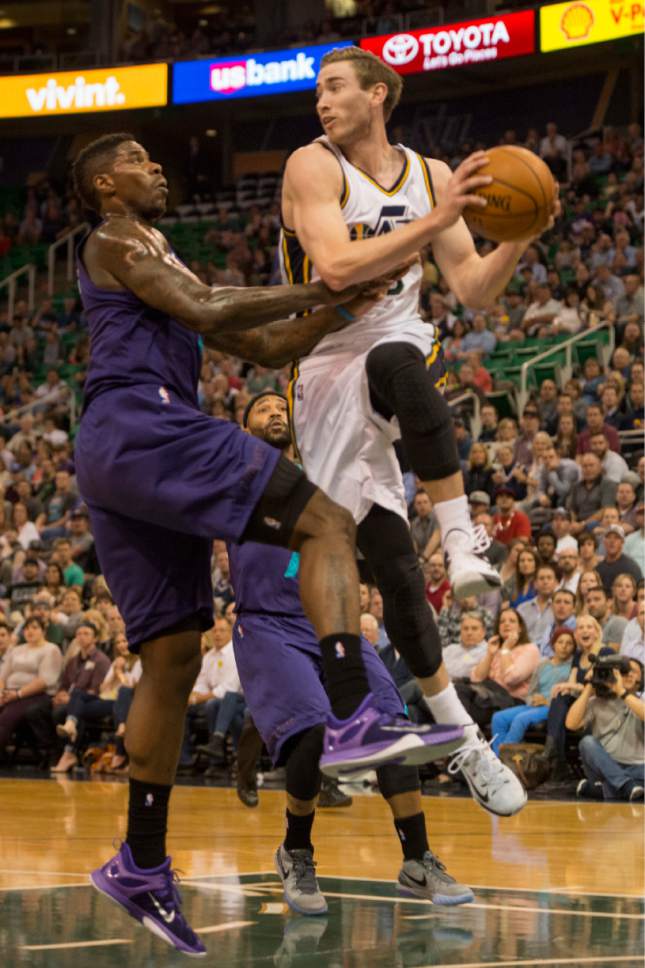This is an archived article that was published on sltrib.com in 2017, and information in the article may be outdated. It is provided only for personal research purposes and may not be reprinted.
Jazz All-Star forward Gordon Hayward's pending free-agency decision already was a feeding frenzy.
That frenzy turned into a chaotic pileup of conflicting reports Tuesday when news surfaced that Hayward was headed for the Boston Celtics — followed by more reports that he had not made a final decision.
In the end, the initial reports proved correct.
Hayward decided to bolt the Jazz and head east to the Celtics. He announced his decision in a lengthy first-person Players' Tribune story in which he thanked Utah for seven years and looked ahead to his future in Boston.
"This was a life-changing decision for me and my family, and something we took really seriously," he wrote. "And from the very start of this process, one thing stood out as important: I knew that I wanted the fans and the organizations to hear my decision directly from me.
"After seven years in Utah, I have decided to join the Boston Celtics."
Hayward's seventh season went smoothly for him and the Jazz. The franchise's top pick in the 2010 draft earned his first trip to the All-Star Game and turned himself into an All-NBA candidate. The Jazz won 51 games and the Northwest Division to qualify for the playoffs for the first time in five years. And he helped them advance to the second round before getting swept by the Golden State Warriors.
But if the season went as planned, his free agency turned chaotic.
That chaos crescendoed Tuesday. The Salt Lake Tribune, The Boston Globe, ESPN and USA Today all reported early Tuesday afternoon that Hayward would sign with Boston, ending his seven-year stay in Utah. By late afternoon, however, his agent, Mark Bartelstein, told The Tribune that reports were premature.
"Gordon and his wife are still in the process of making a decision," Bartelstein said. "This is the toughest decision of Gordon's life. He's still trying to work through it."
The Jazz still were hopeful early Tuesday evening that they could hang on to their star small forward. But then Hayward released his Players' Tribune story, which removed all doubt.
"I know that will be tough to hear for Jazz fans — and I really want you all to know that you mean the world to me and my family," Hayward wrote. "Over the past few days, I have been genuinely torn. And I know that this process isn't easy on the fans, either."
Utah reacted to Hayward's departure with disappointment. The Jazz genuinely felt they had a good shot at keeping him. They met with him Monday for almost four hours, where their pitch revolved around All-NBA center Rudy Gobert and a young core that the front office felt only would improve.
But sources say Hayward was drawn to Boston because of an easier path to playoff success in the Eastern Conference. The Jazz play in what is shaping up to be a brutal Western Conference next season. And two of the best players in the East — Jimmy Butler and Paul George — were traded into the Northwest Division.
Furthermore, the Jazz didn't enjoy much of a financial advantage. Yes, Utah was able to offer Hayward a fifth year and more money. But it was known early in the free-agency process that Hayward wanted a three-year deal with a fourth-year option. That way he could qualify for the 10-year veteran contract, which carries a heftier payday.
Hayward committed Tuesday to a three-year deal with a player option on the fourth year.
"We wish Gordon nothing but the best," Jazz general manager Dennis Lindsey told The Tribune. "We appreciate the seven years he was with us. And we wish nothing but the best for Gordon, Robyn and their two children."
Tuesday turned out to be one of the wildest days in Jazz franchise history. It began with multiple sources telling The Tribune that Hayward had chosen the Celtics. The Jazz quickly made it clear that they hadn't heard anything official from their All-Star. Team president Steve Starks even tweeted: "We trust Gordon and his agent that no decision has been made. Good communication all day and a great relationship."
A source said the Jazz remained in communication with Bartelstein and the Hayward camp until Hayward officially informed the team of his departure just before The Players' Tribune story appeared online.
The franchise will be forced to pick up the pieces, which won't be easy. The Jazz looked like a top four team in the Western Conference with Hayward in the fold as well as the addition of point guard Ricky Rubio and top draft pick Donovan Mitchell.
Without him, Utah could struggle to make the postseason because it plays in the toughest division in the league, and the immediate future for the Jazz becomes murky at best. The roster is ripe with young talent but lacks a go-to player.
Utah will struggle to make up for Hayward's loss with what's left on the unrestricted free-agent market. Hayward averaged a career-high 21.9 points a game and established himself as one of the best all-around talents in the league last season. The Jazz built their team around his abilities.
The Jazz will rely more on fourth-year shooting guard Rodney Hood, who has the ability to be a featured scorer. Utah also has a deep bench, and Gobert has established himself as one of the best big men in the NBA.
But there are significant questions. Joe Johnson and Boris Diaw came to Utah to be a part of deep playoff runs, and the postseason outlook suddenly is bleaker for the Jazz. What happens to them? And what happens with Derrick Favors, who has one year left on his contract? These now are pressing questions the organization has to answer.
Twitter: @tribjazz


